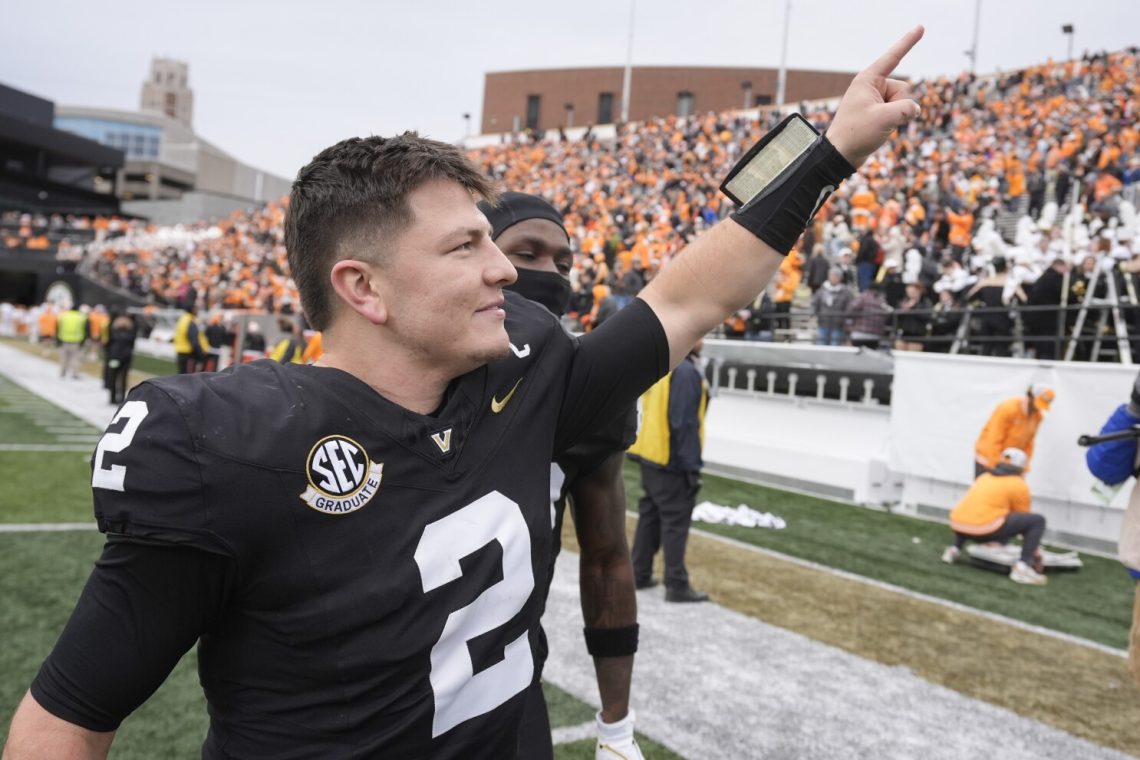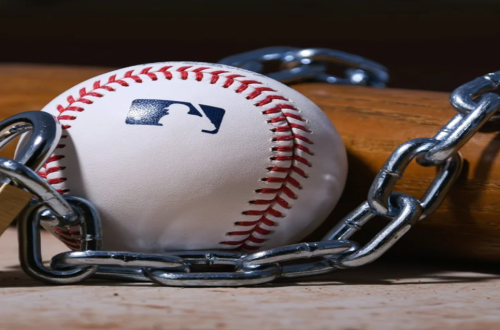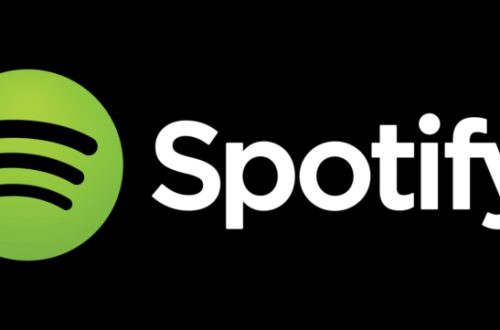By: Ryan Johnston
College football has always had a distinct difference from its professional counterpart. Particularly, the NCAA has a rigid enforcement on the number of years an athlete can compete. College athletes can compete a maximum of four seasons of competition in a five-year window.[1] Traditionally, many freshman athletes would take a “redshirt” season and not compete in their first year of eligibility, then compete in the next four seasons.[2] The COVID-19 pandemic provided a seemingly temporary change to this rule, allowing spring sport students to have an “additional season of competition and extension of their period of eligibility.”[3] This rule change was soon expanded to fall sports as the pandemic waned on.[4]
Now, recent court battles have put the rigidity of the eligibility rules back in the spotlight. The most prominent of these cases is from star Vanderbilt Quarterback Diego Pavia. The NCAA suffered its first setback in December 2024, when the Sixth Circuit allowed Pavia to play a fourth Division I season in six years under a preliminary injunction.[5] Pavia previously played two years at Junior College prior to transferring to Division 1.[6] Pavia’s case illustrates both the complexity of eligibility rules and the growing willingness of courts to question the NCAA’s traditional authority over college athletics.
NCAA Eligibility Rules and Why They Matter
At the heart of the Pavia case is the NCAA’s longstanding “five-year clock” rule. This rule gives student-athletes five calendar years to complete four seasons of competition.[7] This system was designed to balance athletic participation with the academic mission of college sports.[8] NCAA eligibility rules have always focused on academics first and emphasizes their high graduation rates.[9] The “five-year clock” rule is a direct response to the NCAA’s focus on graduation rates and wanting to ensure that student-athletes receive degrees from the institutions they are attending.[10]
The NCAA’s unique role in governing student-athletes has generated several antitrust concerns. In 1984, the NCAA faced their first major challenge in this realm when several schools challenged an exclusive television rights deal.[11] In Nat’l Collegiate Athletic Ass’n v. Bd. of Regents of Univ. of Oklahoma, the NCAA negotiated with ABC and CBS to televise 14 live games per season as well as the ability to negotiate individually with the competing schools.[12] Shortly after the NCAA reached the aforementioned deal, several of the competing schools entered into an arrangement with NBC to carry several games.[13] The NCAA threatened sanctions which led to the suit.
After favorable rulings in the schools’ favor in district and appeals court, the Supreme Court affirmed the lower decisions and held the NCAA violated the Sherman Act by imposing a restraint on their ability to engage in deals with other television networks.[14] Notably, the majority rejected the NCAA’s argument that its “interest in maintaining a competitive balance among amateur athletic teams is legitimate and important and that it justifies the regulations.”[15] The NCAA’s power over student-athletes further eroded in 2021, when the Supreme Court held the NCAA was to be treated as any other industry when it came to antitrust law absent a special statute passed by Congress.[16] Notably, the Court ruled in Alston that NCAA restrictions are economic activity with market impact, opening the door for similar challenges.[17]
Enter Diego Pavia
Vanderbilt University is oft not talked about for their collegiate sports, especially in football. One quarterback can change a culture however, and that is what Diego Pavia has done to the Vanderbilt football program. Pavia’s competitive nature has catapulted Vanderbilt into national relevance, eclipsing in 2024 with a victory over Alabama for their first win ever against a number 1 ranked opponent.[18] The Commodores are off to a strong start in 2025 as well, with a Top 25 ranking at the time of this writing.[19] Surprisingly, Vanderbilt fans have U.S. District Judge William L. Campbell to thank for their success, who granted Pavia a preliminary injunction last December to allow him to play this season.[20]
Pavia played junior college football from 2020-21 at New Mexico Military Institute before transferring to New Mexico State, a Division 1 Program.[21] Pavia played at New Mexico State from 2022-2023 before transferring to Vanderbilt, where he has played since 2024.[22] The current version of the NCAA eligibility rules provide that student-athletes have a five-year competition clock including time spent at junior colleges.[23] Pavia’s fifth and final year of eligibility should have been the 2024 season.[24] Pavia sought an additional year of eligibility and subsequently filed suit.[25] His argument followed the pattern set by Regents and Alston – that the NCAA’s rules violated the Sherman Act, placed a restraint on the athlete labor marker, and “stifled the competition.”[26] Judge Campbell, in granting the injunction, was persuaded by Pavia’s arguments and described the NCAA’s rules on junior college eligibility created “restraints on trade with substantial anticompetitive effects.”[27]
After the ruling, the NCAA granted Pavia and other players in a similar situation a waiver to play in 2025 while appealing the decision.[28] On October 1, the Sixth Circuit upheld Judge Campbell’s ruling and dismissed the case.[29]
The Road Ahead
Pavia’s victory opened the proverbial floodgates for players filing eligibility-based lawsuits against the NCAA. Twelve athletes, including two of Pavia’s Vanderbilt teammates, sued the NCAA in September in an effort to extend eligibility to five seasons instead of four.[30] The plaintiffs argue that the challenge is specifically about the redshirt rule, stating the NCAA already allows players to “play” for five seasons, one just must be on the bench.[31] Pavia’s attorney briefly floated the idea that he would try to play for seven seasons, but this was quickly rejected by Pavia himself on X.[32]
The real question for the NCAA is just how far these lawsuits will ultimately go. The sanctity of college football has always been defined by the unique relationship a student-athlete has with their academics and the overall temporary nature of the sport. With more and more favorable rulings for the athletes, fans could possibly see the college sports change forever. If courts continue to treat eligibility restrictions as antitrust issues, the NCAA may soon have to decide whether to modernize its rules or keep fighting battles it’s increasingly losing. With the growing support for expanding the “five-year clock” to a full five seasons, the NCAA inevitably sees the writing on the wall.
Whether these changes preserve the academic balance that once defined college sports, or push college athletics closer to a professional model, will likely determine what the next generation of “student-athlete” really looks like.
[1] BakerHostetler, One More Season: Student-Athlete Challenges to the NCAA’s Eligibility Rules Continue,(Sep. 22, 2025), https://www.bakerlaw.com/ [https://perma.cc/4RUM-RY2K].
[2] Id.
[3] NCAA, Division I Council extends eligibility for student-athletes impacted by COVID-19, (Mar. 30, 2020), https://www.ncaa.com/ [https://perma.cc/AEN3-3KWG].
[4] Zac Al-Khateeb, NCAA confirms fall sports athletes will retain year of eligibility in 2020-21, Sporting News (Oct. 5, 2021) https://www.sportingnews.com/ [https://perma.cc/4AP7-CFUN].
[5] Teresa M. Walker, NCAA back in court over eligibility rules for Vanderbilt QB Diego Pavia, Associated Press (Sep. 16, 2025), https://apnews.com/ [https://perma.cc/MA8A-S3VX]
[6] Id.
[7] BakerHostetler, supra note 1.
[8] NCAA, Division I Initial-Eligibility Toolkit, (Nov. 25, 2013), https://www.ncaa.org/ [https://perma.cc/L297-YFQL],
[9] Meghan Durham & Saquandra Heath, College athletes continue to graduate at record highs, NCAA (Dec. 2, 2021), https://www.ncaa.org/ [https://perma.cc/U5M9-YG6A].
[10] Id.
[11] Nat’l Collegiate Athletic Ass’n v. Bd. of Regents of Univ. of Oklahoma, 468 U.S. 85 (1984).
[12] Id. at 92-93.
[13] Id. at 94-95.
[14] See id. at 113.
[15] Id. at 117.
[16] See Nat’l Collegiate Athletic Ass’n v. Alston, 594 U.S. 69, 90 (2021).
[17] BakerHostetler, supra note 1.
[18] ESPN, Vanderbilt upsets Alabama for first win vs. No. 1 team, (Oct. 5, 2024),https://www.espn.com/ [https://perma.cc/3KEX-X9MH].
[19] Associated Press, AP Top 25 College Football Poll, (Oct. 5, 2025), https://apnews.com/ [https://perma.cc/EXZ6-AU2Y].
[20] Teresa M. Walker, Vandy QB Diego Pavia wins injunction allowing him to play D-I football in 2025, Associated Press (Dec. 18, 2024), https://apnews.com/ [https://perma.cc/BFY6-V382].
[21] Vanderbilt University Athletics, Diego Pavia, https://vucommodores.com/ [https://perma.cc/L2XX-R46V].
[22] Id.
[23] BakerHostetler, supra note 1.
[24] Id.
[25] Teresa M. Walker, Vanderbilt QB Diego Pavia sues NCAA over eligibility limits for former JUCO players, Associated Press (Nov. 9, 2024), https://apnews.com/ [https://perma.cc/9N65-AYXD].
[26] Id.
[27] Id.
[28] Associated Press, NCAA sends guidance to schools regarding how to handle waiver that resulted from Pavia ruling, (Mar. 14, 2025), https://apnews.com/ [https://perma.cc/J98J-U4DS].
[29] Associated Press, Appeals panel upholds Vanderbilt QB Diego Pavia’s eligibility, ESPN (Oct. 1, 2025), https://www.espn.com/ [https://perma.cc/XH5B-7AW2].
[30] Dan Murphy, College athletes suing NCAA to extend eligibility to 5 seasons, ESPN (Sep. 2, 2025), https://www.espn.com/ [https://perma.cc/GXP4-WEJF].
[31] Id.
[32] Jacob Stoebner, Diego Pavia not seeking seventh year of eligibility, The Vanderbilt Hustler (Sep. 16, 2025), https://vanderbilthustler.com/ [https://perma.cc/79Z8-X98D].





